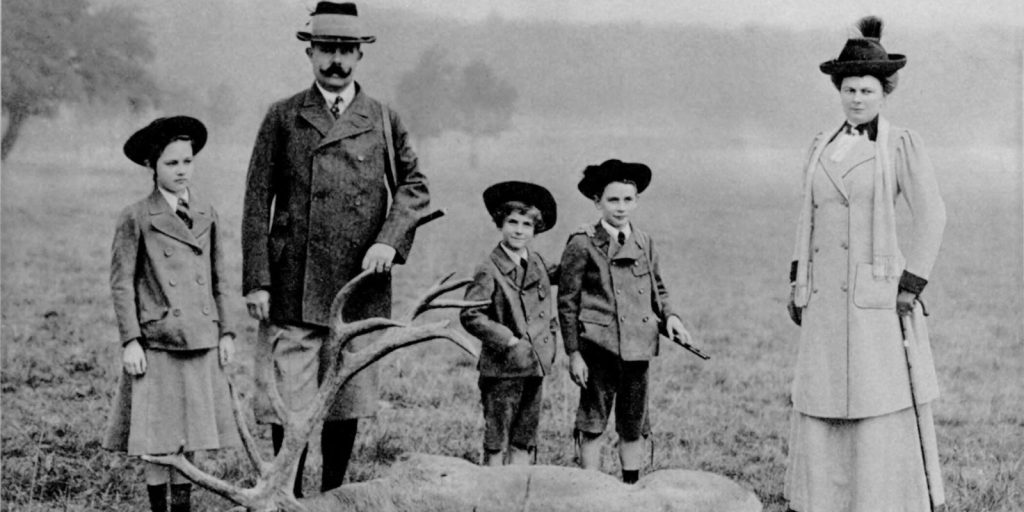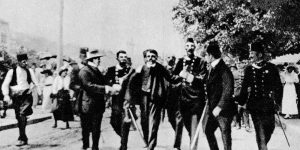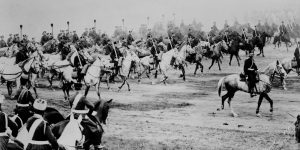
What Happened On June 28th?
On June 28, 1914, in Sarajevo, a single gunshot plunged the world into unprecedented conflict. The assassination of Austrian Archduke Franz Ferdinand and his wife Sophie ended two lives and ignited the fuse for World War I.
The Fatal Visit
Franz Ferdinand, heir to the Austro-Hungarian throne, arrived in Sarajevo with his wife Sophie for an official visit. The city, part of the empire’s volatile Balkan territories, simmered with ethnic tensions and nationalist fervor. The couple’s visit aimed to demonstrate Austro-Hungarian strength and unity, but it turned into a tragic moment in history.
Plotting Armageddon
Gavrilo Princip, a member of the Black Hand, a Serbian nationalist group, had carefully planned the assassination with other conspirators. They aimed to strike a blow against Austro-Hungarian oppression and spark a revolution among the Slavs. On the morning of June 28th, the royal couple’s motorcade moved through Sarajevo, unaware of the deadly intent before them.
Princip, suffering from tuberculosis, did not expect to live long. This desperation likely fueled his willingness to undertake the suicidal mission. Interestingly, Princip was only 19 years old, highlighting the youthful zeal and fervor that drove many nationalists of the time.

Triggering Absolute Chaos
The assassination plot nearly failed early in the day. Nedeljko Čabrinović, one of the conspirators, threw a grenade at the Archduke’s car. The grenade bounced off the folded convertible roof and exploded under the next car, injuring several people. Franz Ferdinand and Sophie, shaken but unharmed, continued their visit after a brief pause to attend to the wounded.
To avoid further danger, the Archduke’s party decided to change their route. However, this change was not communicated to the drivers. As the convoy proceeded, confusion ensued, and the cars halted near a café where Princip stood. Seizing the opportunity, Princip stepped forward and fired two shots into the car, killing both Franz Ferdinand and Sophie.
The bullet that struck Sophie passed through her corset’s wire frame, worsening her injury. Franz Ferdinand’s last words to his wife were reportedly: “Sophie, Sophie! Don’t die! Stay alive for our children!” It was also reported that Franz Ferdinand wore a blood-soaked military jacket with the collar turned up, hiding his rank insignia, as he tried to protect his dignity in his final moments.
Conflict & Immediate Reactions
The deaths of Franz Ferdinand and Sophie plunged Austria-Hungary into mourning, but the political implications quickly overshadowed the personal tragedy. The empire saw the assassination as a direct attack by Serbian nationalism and sought to use the incident to assert its dominance in the Balkans.
Austro-Hungarian officials, backed by their German allies, issued a series of demands to Serbia. Serbia’s partial compliance and diplomatic efforts failed to satisfy Austria-Hungary. On July 28, 1914, exactly one month after the assassination, Austria-Hungary declared war on Serbia, setting off a chain reaction among the major powers of Europe.

Alliances & Escalation
The assassination of Franz Ferdinand and Sophie triggered a cascade of alliances and treaties that led to a full-scale war. Russia mobilized in support of Serbia, prompting Germany to declare war on Russia. France, allied with Russia, soon faced a German declaration of war. Germany’s invasion of neutral Belgium drew Britain into the conflict, and within weeks, Europe was engulfed in war.
Many European leaders at the time were related by blood or marriage, including Kaiser Wilhelm II of Germany, King George V of Britain, and Tsar Nicholas II of Russia. Their familial ties did little to prevent the slide into war.
Fading Hopes
Franz Ferdinand’s vision of reforming the Austro-Hungarian Empire to grant greater autonomy to various ethnic groups died with him. His assassination silenced a voice that might have steered the empire on a different path, potentially averting the war or at least altering its trajectory. His death also ended hopes for a more unified and peaceful empire, as ethnic tensions continued to rise.
The Great War
The war’s brutality and the sheer number of lives lost shocked the world. Over 20 million people, including soldiers and civilians, perished, and millions more were wounded or displaced. The conflict ravaged entire regions, destroying towns, cities, and countrysides around the world.
Initially, the United States maintained a stance of neutrality, hoping to stay out of the European conflict. However, several factors gradually drew the U.S. into the war. Unrestricted submarine warfare by Germany led to the sinking of civilian ships, including the Lusitania, which resulted in the deaths of 128 Americans. Additionally, the interception of the Zimmermann Telegram, in which Germany proposed a military alliance with Mexico against the U.S., further inflamed American public opinion.
On April 6, 1917, the United States declared war on Germany, joining the Allied powers. American troops, resources, and industrial might provided a much-needed boost to the weary Allies. The arrival of fresh American forces helped tip the balance in favor of the Allies, leading to a series of successful offensives against the Central Powers.

